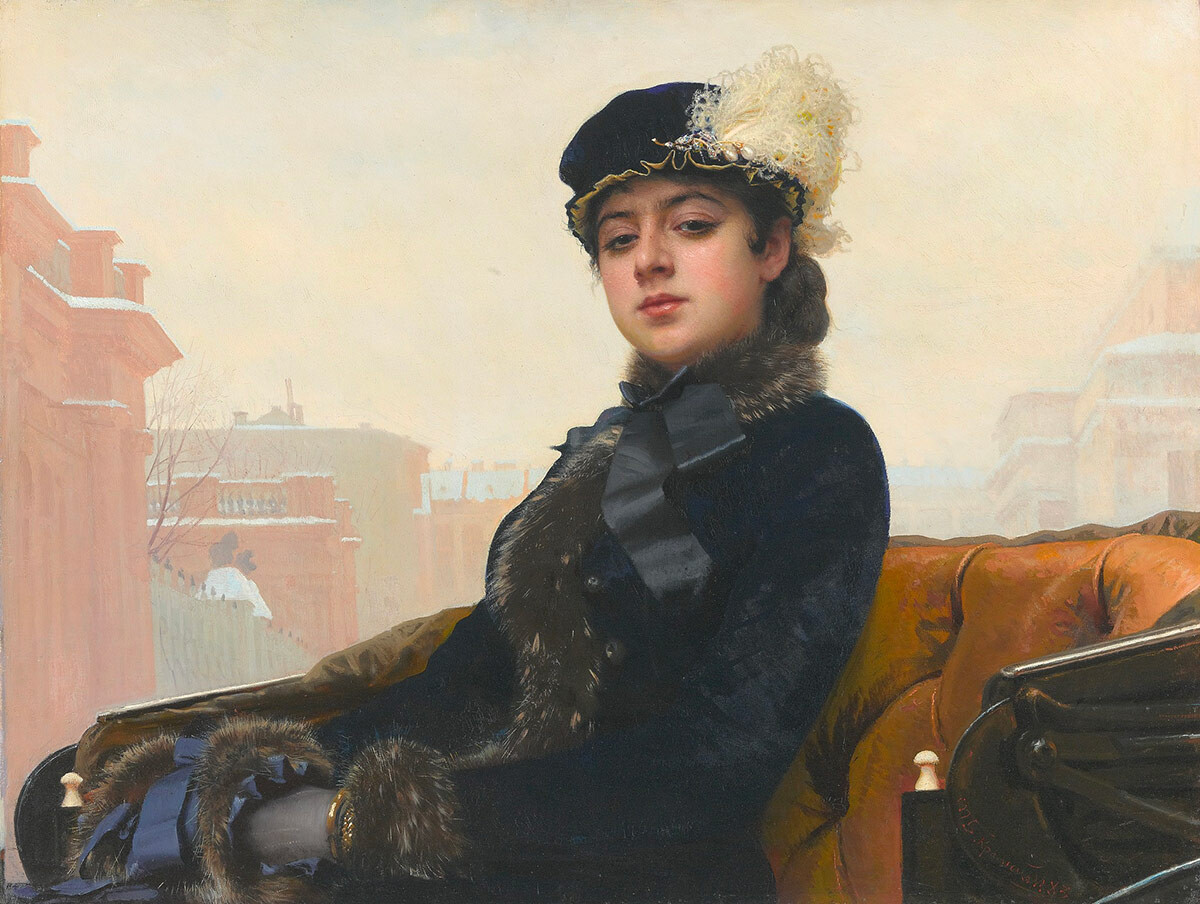
It is easy to recognize the Alexandrinsky Theater and the outlines of the Anichkov Palace in St. Petersburg behind the beautiful unknown woman sitting in a two-seater carriage. A quick glance at the 1883 painting would have immediately alerted Kramskoi's contemporaries: A young woman sitting alone in a carriage unaccompanied by a man was a scandalous situation. It was unheard of at the time! It was almost impossible for a lady to go out on her own: She was always either with her father, husband, brother or another relative.
The stranger seems to be wearing all her best clothes at once: a velvet "Francis" style hat with an ostrich feather and pearls, fine leather "Swedish" gloves and a "Skobelev" style coat with ribbons and fur trim. It might appear to be just a "fashionable look", incorporating all the latest trends. But, only ladies of questionable repute could dress like this: Among aristocrats, it was considered improper to wear the latest chic fashions. Critics of the time didn't mince their words, describing the model as "a cocotte in a carriage", "the spawn of big cities" and "an expensive courtesan".
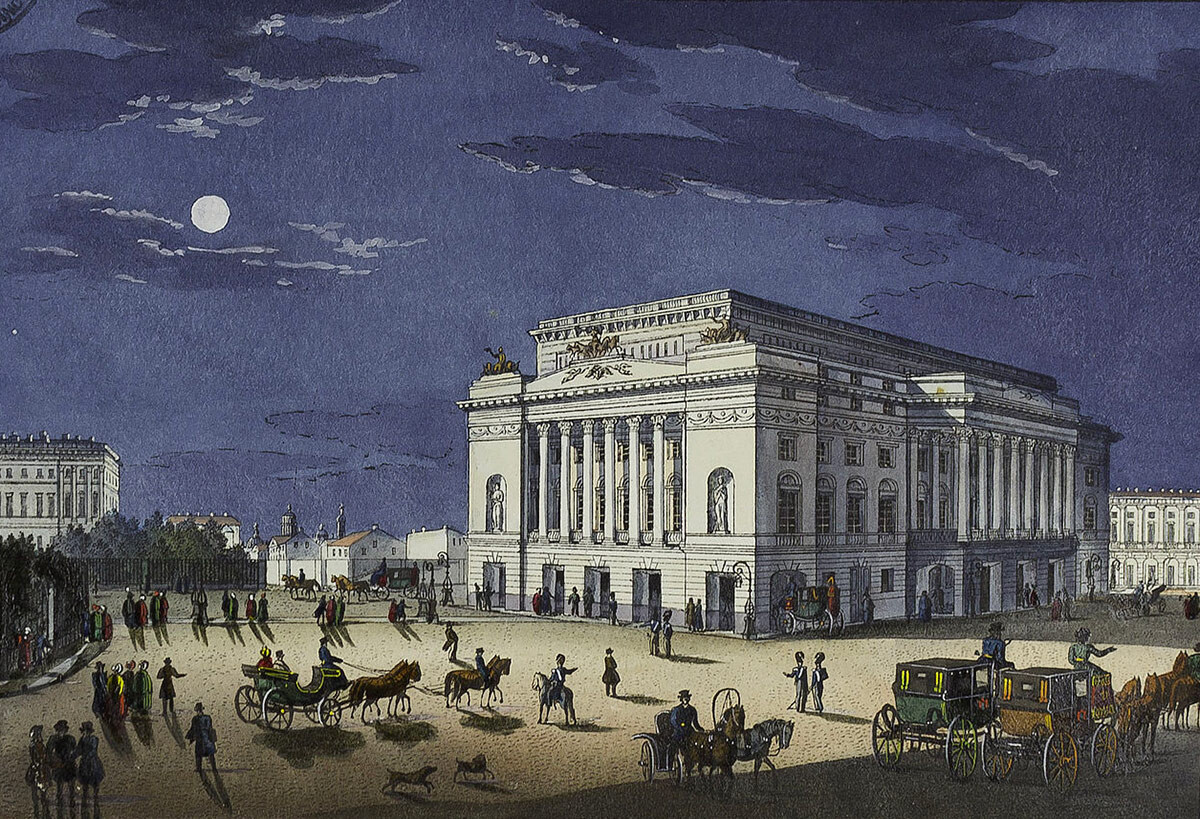
There are many theories as to the identity of the woman in Kramskoi's painting, ranging from the plausible to the downright fantastic. The most prosaic explanation is that Kramskoi's model was a high-class prostitute. This is hinted at by the view of the Anichkov Palace: The adjacent Alexandrinsky Square was a regular haunt for women of the night. Other theories link the unknown model to members of the Tsarist Romanov dynasty.
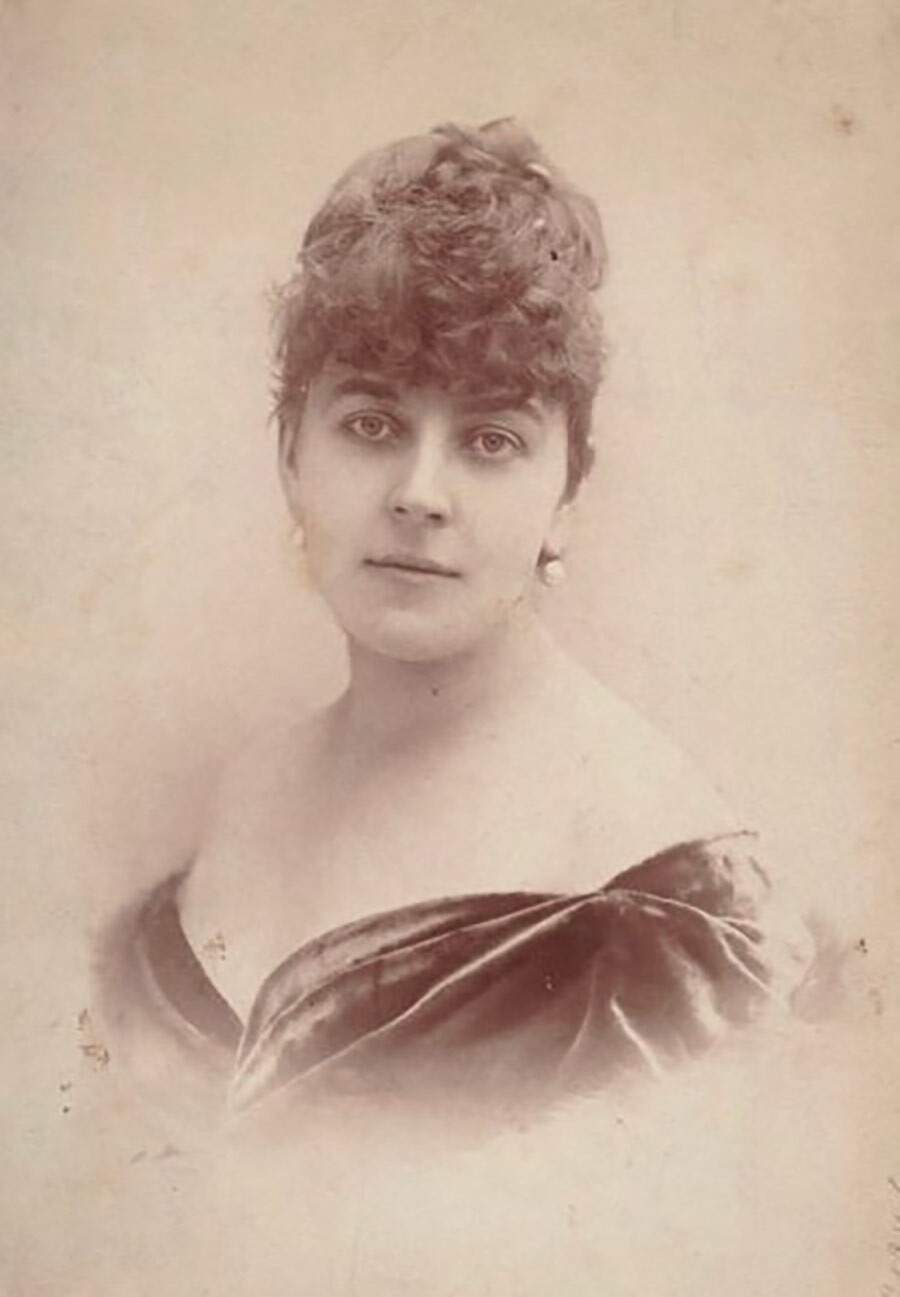
The portrait might depict the sister of General Mikhail Skobelev - Zinaida Beauharnais, Duchess of Leuchtenberg - who had an affair with Grand Duke Alexei Alexandrovich. Or, she could be Princess Yekaterina Dolgorukova, the favorite and then morganatic wife of Alexander II. They were unafraid of flouting the rules of propriety and would go out for rides in an open carriage. The unidentified woman could also be Princess Varvara Turkestanova, lady-in-waiting to Empress Maria Feodorovna and mistress of Alexander I.
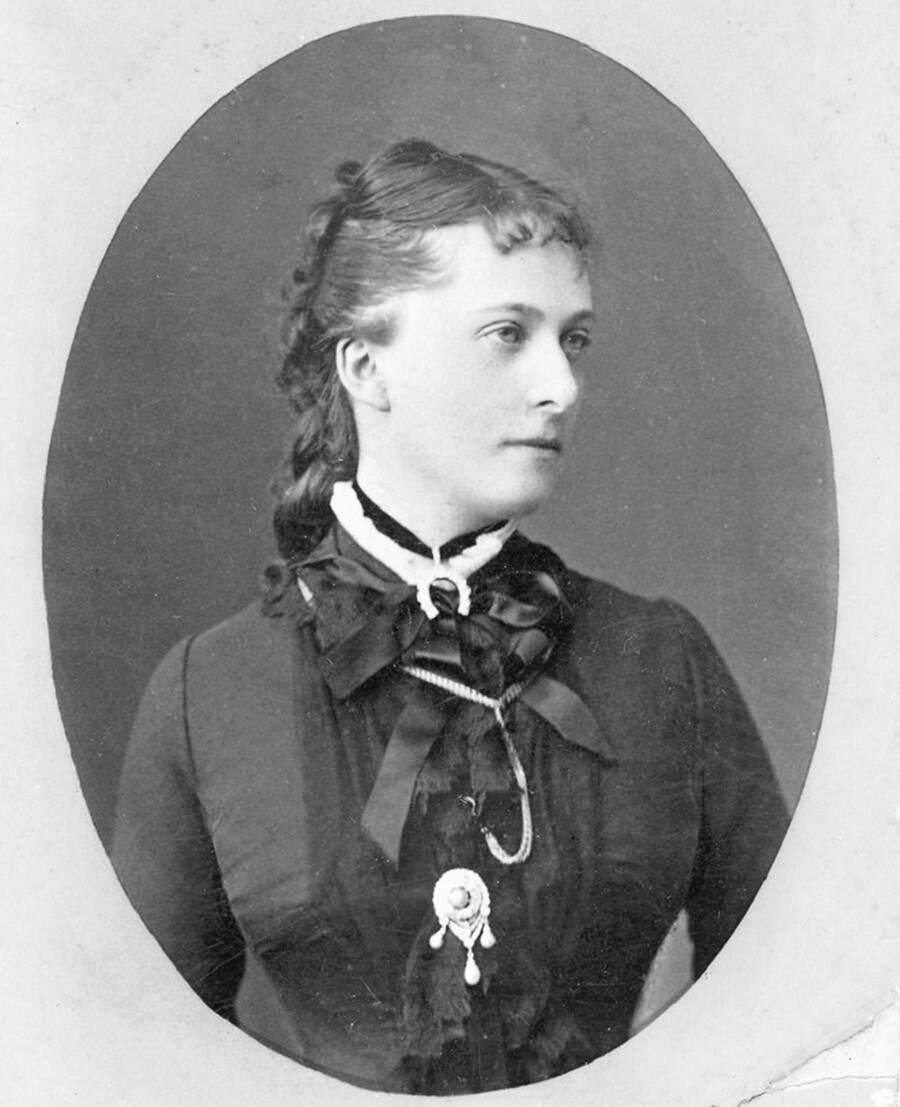
There are also less popular and more realistic scenarios: For instance, that the beautiful model is just Ivan Kramskoi's daughter Sofia. Or that she could have been Matryona Savvishna Bestuzheva: Prince Bestuzhev fell head over heels for his aunt’s housemaid and obtained permission for the unequal match.
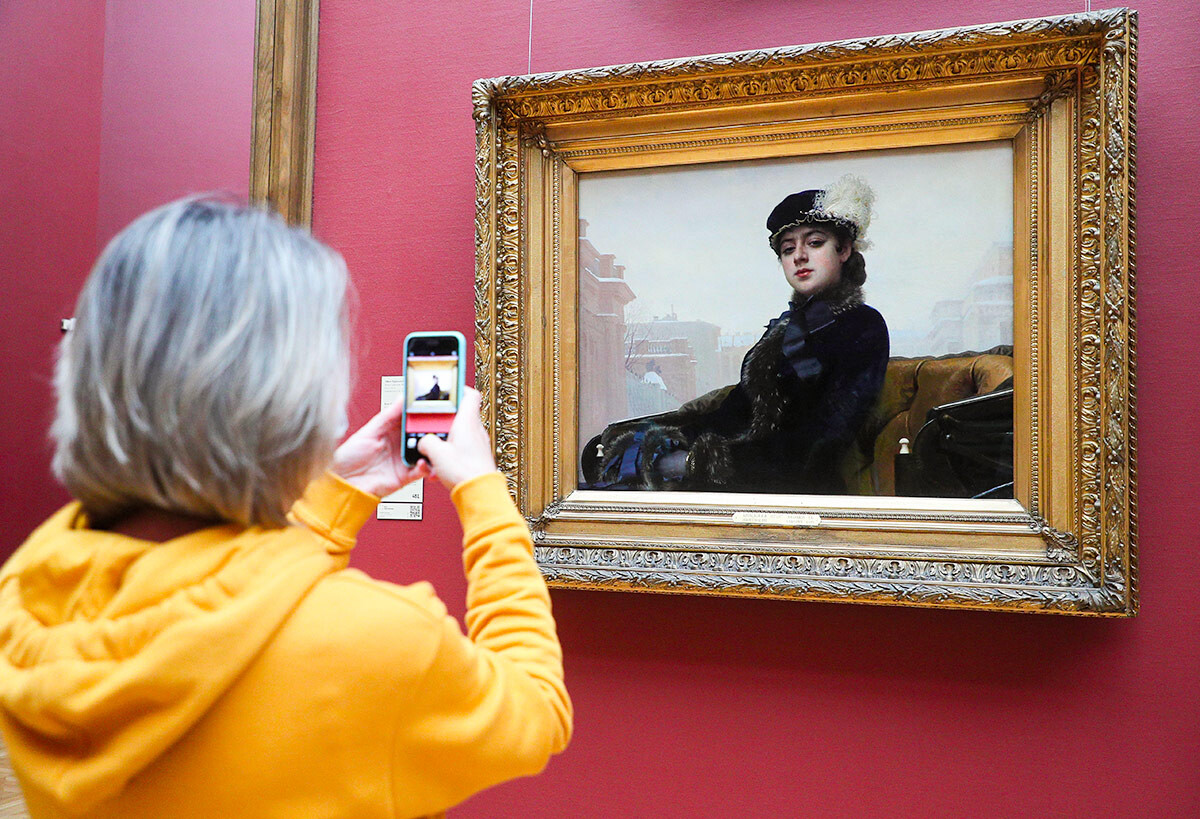
Kramskoi's painting is surrounded by a large number of legends, one of which is that the 'Unknown Woman' brings bad luck. The first person to experience it was the artist himself: Despite expectations, Pavel Tretyakov decided not to purchase the work for his collection. Owners of the painting were dogged by misfortune: alcohol dependency, a wife running off with her lover and a fire, in which Kramskoi's canvas was the only object left undamaged. Its last owners were a sugar manufacturer named Pavel Kharitonenko and his wife Vera. Their Moscow mansion was nationalized in 1917, together with the picture collection. And, in 1925, the 'Unknown Woman' ended up in the Tretyakov Gallery collection, after all.
Dear readers,
Our website and social media accounts are under threat of being restricted or banned, due to the current circumstances. So, to keep up with our latest content, simply do the following:
If using any of Russia Beyond's content, partly or in full, always provide an active hyperlink to the original material.
Subscribe
to our newsletter!
Get the week's best stories straight to your inbox